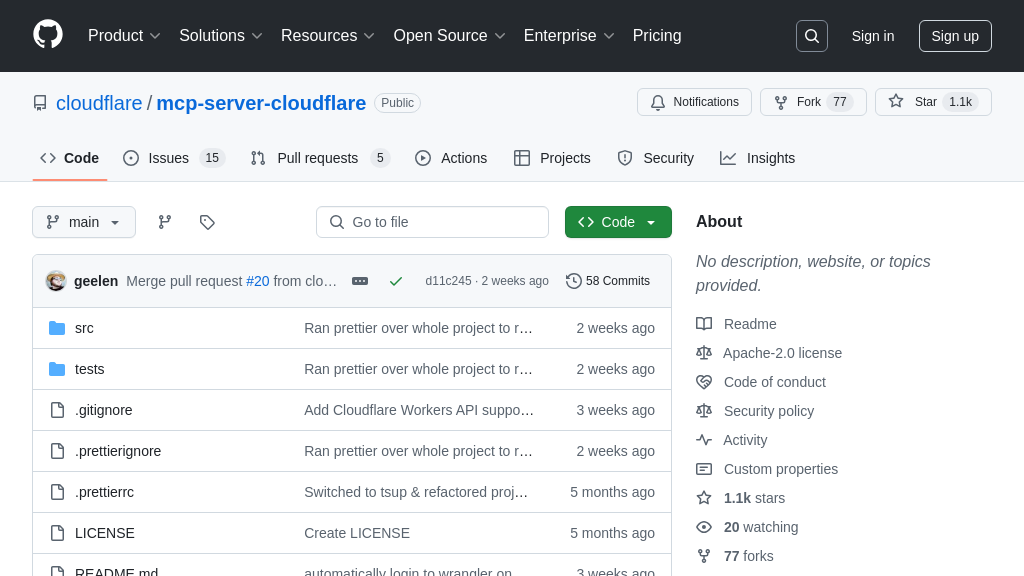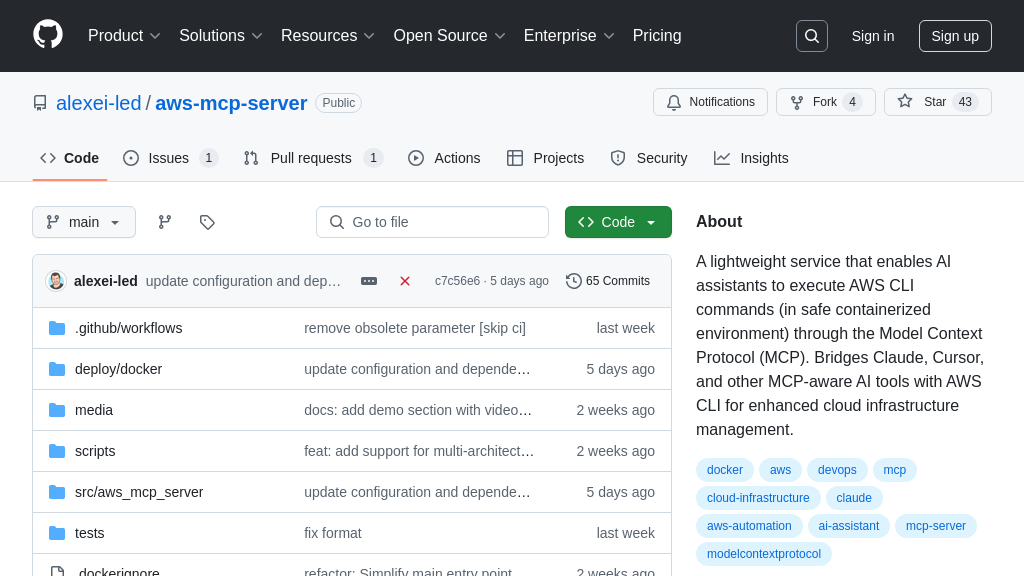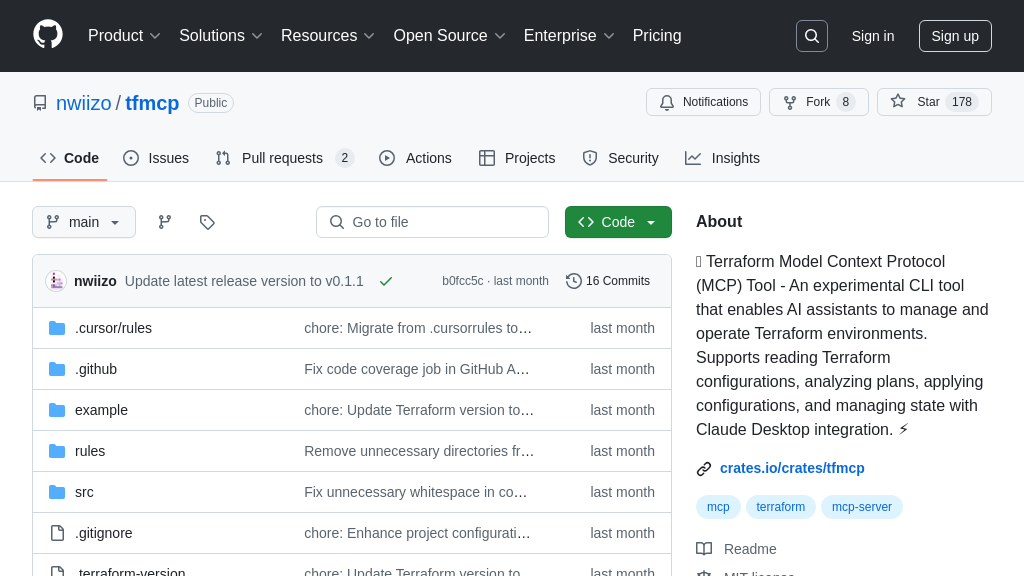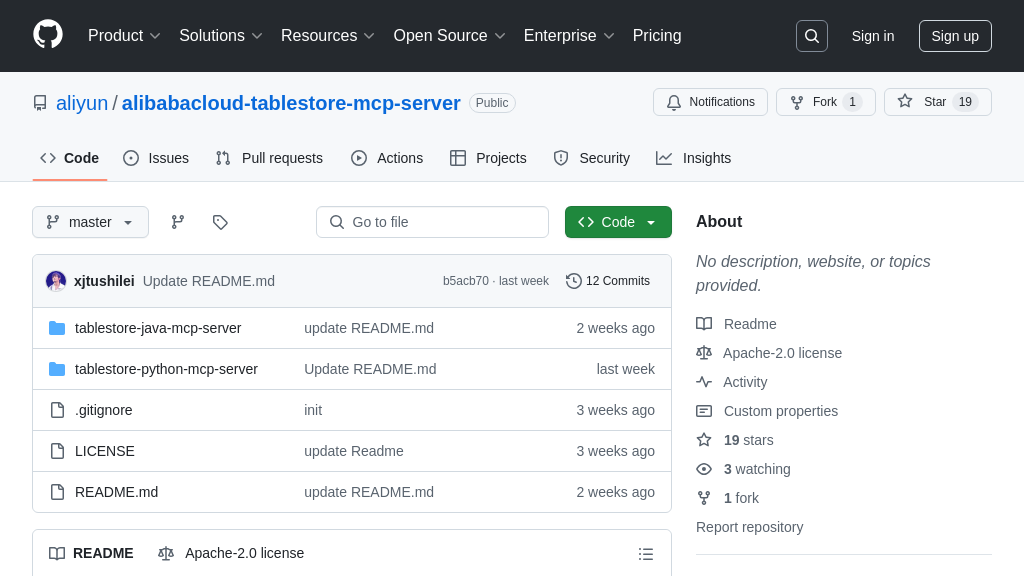netskope-mcp
Netskope NPA MCP Server: AI-powered management of Netskope NPA via MCP.
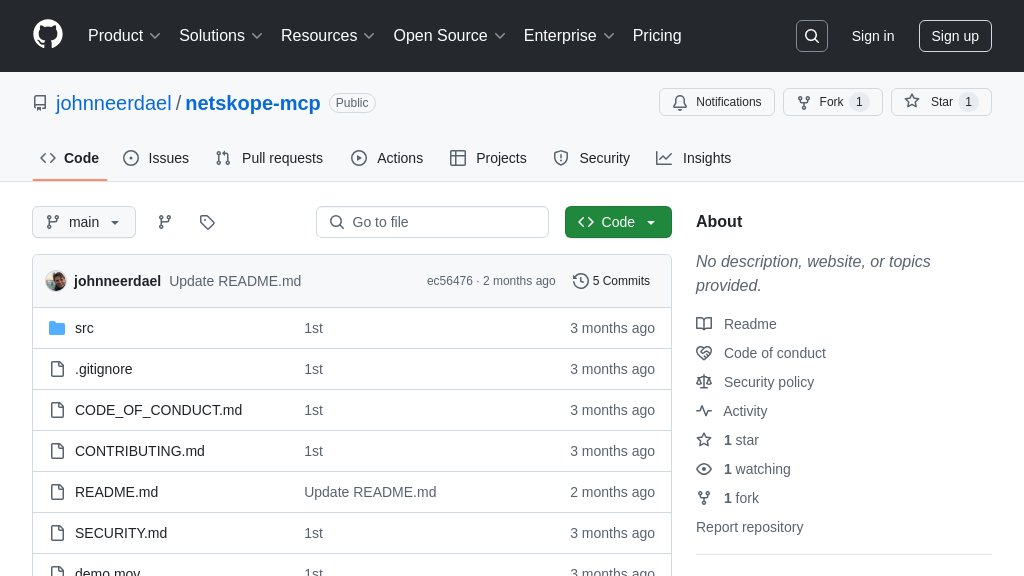
netskope-mcp Solution Overview
Netskope-mcp is an MCP server designed to manage Netskope Network Private Access (NPA) infrastructure using Large Language Models (LLMs). As a server within the MCP ecosystem, it provides a suite of tools for interacting with Netskope's NPA, including managing local brokers, policies, private applications, and publishers.
This solution allows AI models to retrieve alert configurations, list and manage local brokers, define and enforce access policies, and configure private applications. It interacts with AI models through standard MCP client-server architecture, enabling actions like creating, updating, and deleting resources via structured API calls.
The core value lies in enabling AI-driven automation of Netskope NPA management, reducing manual intervention and improving security posture. By integrating with LLMs, netskope-mcp simplifies complex network management tasks, offering a more intuitive and efficient way to control access to private applications. It can be installed via NPM or by cloning the repository for local development.
netskope-mcp Key Capabilities
NPA Infrastructure Management
The netskope-mcp server provides a comprehensive interface for managing Netskope Network Private Access (NPA) infrastructure using Large Language Models (LLMs). It allows users to interact with and control various aspects of their NPA setup, including local brokers, publishers, private applications, and policies, through natural language commands. This simplifies complex configuration tasks and enables automation of routine operations. For example, an administrator can use an LLM to create a new private application, define access policies, and manage publisher assignments, all through a conversational interface. This reduces the need for manual configuration via the Netskope web interface, saving time and minimizing the risk of human error. The server acts as a bridge between the LLM and the Netskope API, translating natural language requests into API calls and presenting the results in a user-friendly format.
Zero Trust Policy Automation
This MCP server enables the automation of Zero Trust Network Access (ZTNA) policy management. It allows users to define and enforce granular access controls for private applications based on various contextual factors such as user identity, device posture, and location. The PolicyTools and PrivateAppsTools modules provide functionalities to list, create, update, and delete policy rules and private applications, respectively. For instance, a security team can use the server to create a policy that allows only authorized users on compliant devices to access a specific internal application from a specific location. This ensures that only trusted users and devices can access sensitive resources, reducing the risk of unauthorized access and data breaches. The server also supports policy auditing and reporting, allowing administrators to track policy changes and ensure compliance with regulatory requirements.
Real-time Alert Configuration
The AlertsTools module allows for real-time configuration of alerts related to publisher status and upgrade events. This feature enables administrators to proactively monitor the health and performance of their Netskope NPA infrastructure and respond quickly to any issues that may arise. For example, an administrator can configure alerts to be notified when a publisher's connection fails or when an upgrade process starts, succeeds, or fails. This allows them to take immediate action to resolve the issue and minimize any potential impact on users. The alert configuration can be customized to include specific event types and recipients, ensuring that the right people are notified of the right events. This feature enhances the overall reliability and availability of the Netskope NPA infrastructure.
Technical Implementation
The netskope-mcp server is implemented as a Node.js application and can be installed either via NPM or through local development. It leverages the Netskope API to interact with the Netskope platform and requires the configuration of environment variables such as NETSKOPE_BASE_URL and NETSKOPE_API_KEY for authentication. The server exposes a set of tools, each providing specific functionalities for managing different aspects of the Netskope NPA infrastructure. These tools are designed to be easily accessible and usable by LLMs, allowing for seamless integration with natural language interfaces. The server supports both standard input/output and HTTP/SSE transport mechanisms, providing flexibility in how it is deployed and used. The use of a standardized MCP interface allows for easy integration with other AI-powered tools and platforms, creating a more comprehensive and automated security management ecosystem.

